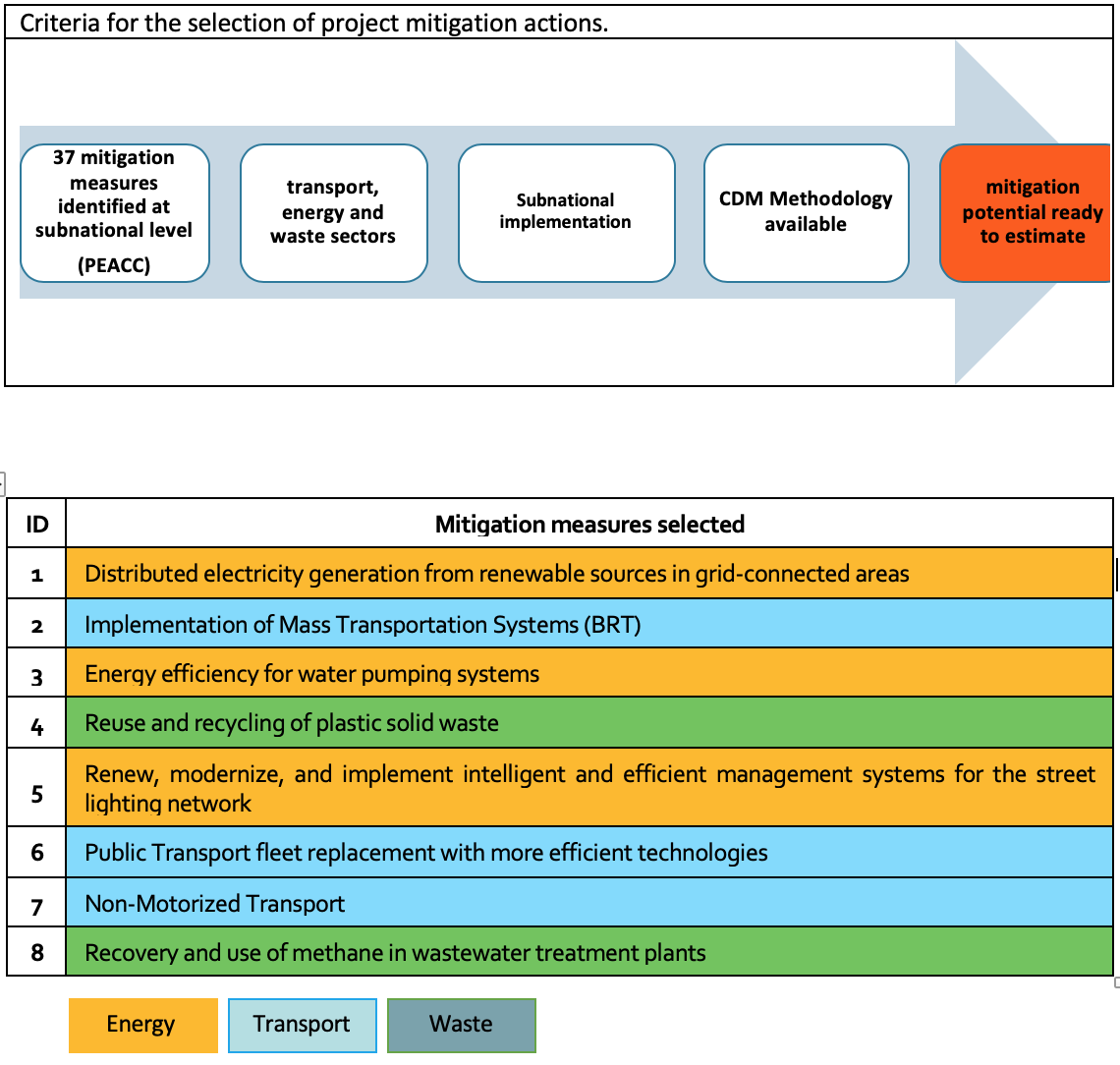Tracking the progress of implementation of mitigation actions included by countries in their Nationally Determined Contribution (NDC) is at the core of the Paris Agreement and its transparency mechanisms. At country level this might lead to more accurate and comprehensive planning, and developing policies to support actions that help achieve national targets or even go beyond them. Currently, several countries are seeking how to assess quantitatively climate mitigation undertaken by subnational actors, enhancing transparency on mitigation results and to build trust and mutual confidence with local stakeholders. Mitigation results must be transparent on its estimation and comparable so that adequate quantification methodologies are required between local governments, to allow replicability in the design and implementation of specific mitigation projects and actions, and to be properly added into the national mitigation goals.
In the view of the effective implementation of the Paris Agreement, Mexico acknowledges the importance of properly accounting for the contribution from subnational entities to its NDC, and in its General Law on Climate Change (LGCC by its Spanish acronym) has indicated that States must include in their programmes, a proper measurement, reporting and verification of their mitigation actions. On this basis, the National Institute of Ecology and Climate Change (INECC) of Mexico has requested the Danish Energy and Climate Partnership Programme support for developing innovative and adequate methodologies for ex-ante and ex-post quantification of selected mitigation actions at a state level, and preparation of training materials for a wide implementation of these methodologies. This group of methodologies will support Mexico in complying with the enhanced transparency framework under the Paris Agreement, providing the basis for the implementation of MRV systems at subnational level, facilitating the elaboration of mitigation actions and the track of progress regarding the NDC implementation.
Characterizing the impact of subnational actions through a solid methodology and with the support from an adequate framework for measuring, reporting and verification of mitigation actions, Mexico expects also to increase its level of ambition in terms of emission reductions, reinforcing the actions undertaken at a national level.
Tasks of the Project:
Task 1. Review of the existing methodological frameworks for quantification of mitigation actions in Mexico’s states and good practices adopted regarding MRV.
Task 2. Develop a methodology to quantify mitigation actions at a state level.
Task 3. Elaborate training materials with the suggested quantification methodology and disseminate results
Task 4. Recommendations to improve quantification of mitigation actions
Selection of the project mitigation actions.

The work has been jointly developed by UNEP-DTU Partnership´s Climate Change Mitigation Analysis and Data Management Section, and the Local Consultancy firm E3 Consultora Ambiental (Mexico). The Supervision of the Project is under the Coordination of Mitigation at the National Institute of Ecology and Climate Change (INECC) of Mexico, in collaboration with the Danish Energy Agency (DEA).
The UNEP-DTU Greenhouse gas Abatement Cost Model (GACMO) was applied as a part of this project to a cluster of mitigation actions presented in the 2016-2022 State Action Programmes for Climate Change of the State of Oaxaca (11 actions altogether in the sectors of energy, forestry and waste ). GACMO currently allows calculation of GHG emissions reductions associated with more than 100 types of mitigation measures, coupled with estimations of costs avoided.
For more information on GACMO:Share this
Focus area: Climate Transparency and Accountability, Enhancing Local MRV systems for transparency, Toolbox and training for enhanced transparency
Country / Region: Latin America and the Caribbean, Mexico



